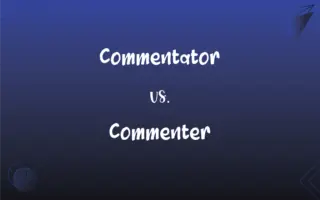Alternate vs. Alternative: What's the Difference?
Edited by Aimie Carlson || By Harlon Moss || Updated on October 25, 2023
"Alternate" refers to two things that take turns or succeed each other; "alternative" implies a choice between two or more options.

Key Differences
"Alternate" and "alternative" are terms that often get interchanged, but they have distinct meanings. While "alternate" pertains to two things succeeding each other in a definite pattern, "alternative" denotes a choice among two or more possibilities.
For instance, when discussing time or sequence, "alternate" refers to the act of switching between things, typically at regular intervals. In contrast, "alternative" would allude to an available option or substitute that one might consider.
In certain contexts, "alternate" can be a noun, referring to a person who stands in for another. "Alternative," when used as a noun, implies a secondary option or a choice that deviates from the norm.
It's crucial to note that in American English, "alternative" often takes on the meanings of both words, leading to some confusion. However, understanding the distinction can help clarify communication.
To elucidate further, if someone takes an "alternate" route to work, they're likely referring to a different path they take on specific days. If they mention an "alternative" route, they're talking about a choice of another way, which might be used when the primary one is unavailable.
ADVERTISEMENT
Comparison Chart
Definition
Two things succeeding each other in a pattern.
A choice among two or more options.
Relation to Time/Sequence
Pertains to regular intervals.
Implies an available substitute.
Usage as a Noun
Can refer to a substitute person.
Denotes a secondary option or choice.
Common Confusion
Less ambiguous outside the U.S.
Often encompasses meanings of both terms in American English.
Synonym
Successive.
Substitute.
ADVERTISEMENT
Alternate and Alternative Definitions
Alternate
Acting as a substitute.
She is the alternate delegate.
Alternative
Not traditional or usual; unconventional.
They chose the alternative rock genre.
Alternate
Every other; every second.
Please water the plants on alternate days.
Alternative
Offering a choice between two or more things.
You have two alternative options to pick from.
Alternate
Serving by turns or changing regularly.
He works on alternate days.
Alternative
Available as another choice or possibility.
She offered an alternative solution.
Alternate
Following by turns; sequential.
They sat in an alternate pattern.
Alternative
Relating to activities that challenge traditional norms.
He's involved in the alternative energy sector.
Alternate
To interchange regularly or in succession.
The lights were set to alternate colors.
Alternative
Being outside the established norm or mainstream.
Alternative medicine seeks different healing methods.
Alternate
To occur in a successive manner
Day alternating with night.
Alternative
One of a number of possible choices or courses of action
There are plenty of alternatives to conventional advertising.
FAQs
How do "alternate" and "alternative" differ in meaning?
"Alternate" implies a sequence; "alternative" implies a choice.
Can "alternate" be used as a noun?
Yes, as in "He's the alternate for the team."
Do both words have similar roots?
Both come from Latin, relating to "other" or "turning."
Does "alternative" always offer only two choices?
No, it can refer to multiple options.
Is "alternate" related to time?
Yes, it often implies a sequence or regular intervals.
How can I remember the difference?
Think of "alternate" as "by turns" and "alternative" as "a choice."
Can "alternate" mean "substitute"?
Yes, especially when used as a noun.
Can "alternate" be a verb?
Yes, as in "The colors alternate."
Do all English speakers use these terms the same way?
No, American English sometimes blurs their meanings more than British English.
Are the words interchangeable?
Not always, and context matters.
Why is there confusion between the two terms?
Overlapping usage, especially in American English, causes ambiguity.
Which term is older?
Both have old roots, but "alternative" entered English earlier.
Which word is more common?
"Alternative" is more broadly used, especially in American English.
What does "alternative" often mean in American English?
It can mean both a choice and something in sequence.
Can "alternative" mean unconventional?
Yes, as in "alternative music" or "alternative lifestyles."
Can both words be adjectives?
Yes, as in "alternate days" or "alternative methods."
Can "alternative" mean non-mainstream?
Yes, it often refers to things outside the norm.
Is "alternate" always about two things?
Mostly, but it can mean "every other" in some contexts.
Does "alternative facts" mean "false facts"?
It's controversial and often used to mean "contrary information."
Is "alternate route" the same as "alternative route"?
Not always. "Alternate" implies regular switching; "alternative" means another option.
About Author
Written by
Harlon MossHarlon is a seasoned quality moderator and accomplished content writer for Difference Wiki. An alumnus of the prestigious University of California, he earned his degree in Computer Science. Leveraging his academic background, Harlon brings a meticulous and informed perspective to his work, ensuring content accuracy and excellence.
Edited by
Aimie CarlsonAimie Carlson, holding a master's degree in English literature, is a fervent English language enthusiast. She lends her writing talents to Difference Wiki, a prominent website that specializes in comparisons, offering readers insightful analyses that both captivate and inform.






































































